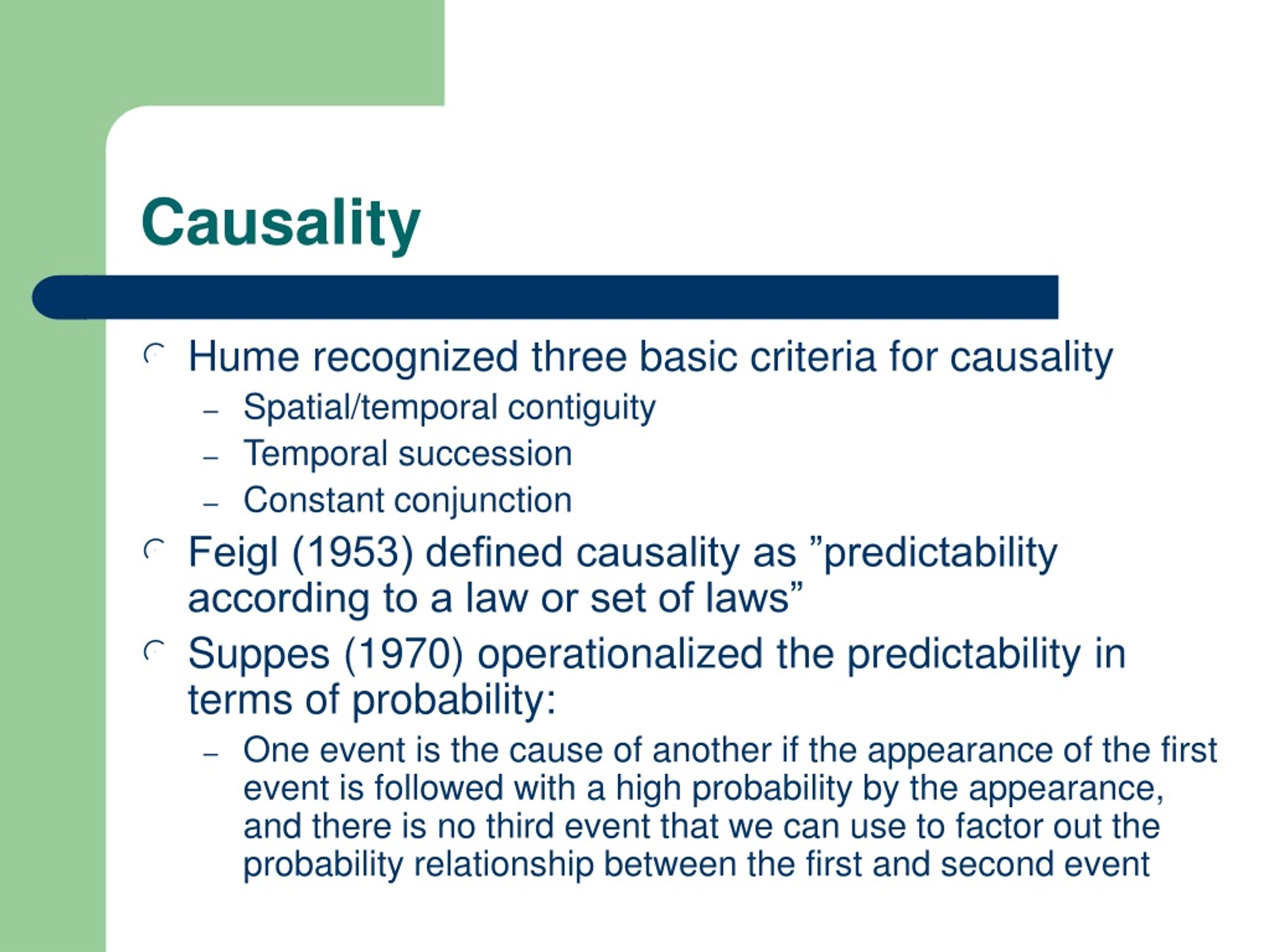

That is to say, it would make good sense grammatically to say either " A is the cause and B the effect" or " B is the cause and A the effect", though only one of those two can be actually true. One viewpoint on this question is that cause and effect are of one and the same kind of entity, with causality an asymmetric relation between them. Ontology Ī general metaphysical question about cause and effect is what kind of entity can be a cause, and what kind of entity can be an effect. But he did not have the understanding that came with knowledge of Minkowski geometry and the special theory of relativity, that the notion of causality can be used as a prior foundation from which to construct notions of time and space. Kant thought that time and space were notions prior to human understanding of the progress or evolution of the world, and he also recognized the priority of causality. The nature of cause and effect is a concern of the subject known as metaphysics. 3.1.3 Biology, medicine and epidemiology.The topic of causality remains a staple in contemporary philosophy. Of Aristotle's four explanatory modes, the one nearest to the concerns of the present article is the "efficient" one.ĭavid Hume, as part of his opposition to rationalism, argued that pure reason alone cannot prove the reality of efficient causality instead, he appealed to custom and mental habit, observing that all human knowledge derives solely from experience. In this case, the "cause" is the explanans for the explanandum, and failure to recognize that different kinds of "cause" are being considered can lead to futile debate.

Aristotle categorized the four types of answers as material, formal, efficient, and final "causes". In English studies of Aristotelian philosophy, the word "cause" is used as a specialized technical term, the translation of Aristotle's term αἰτία, by which Aristotle meant "explanation" or "answer to a 'why' question". Accordingly, causality is implicit in the logic and structure of ordinary language. For this reason, a leap of intuition may be needed to grasp it. The concept is like those of agency and efficacy. Ĭausality is an abstraction that indicates how the world progresses, so basic a concept that it is more apt as an explanation of other concepts of progression than as something to be explained by others more basic. Some writers have held that causality is metaphysically prior to notions of time and space. An effect can in turn be a cause of, or causal factor for, many other effects, which all lie in its future. In general, a process has many causes, which are also said to be causal factors for it, and all lie in its past. For other uses, see Cause (disambiguation) and Cause and effect (disambiguation).Ĭausality (also referred to as causation, or cause and effect) is influence by which one event, process, state, or object (a cause) contributes to the production of another event, process, state, or object (an effect) where the cause is partly responsible for the effect, and the effect is partly dependent on the cause. "Cause" and "Cause and effect" redirect here.


 0 kommentar(er)
0 kommentar(er)
